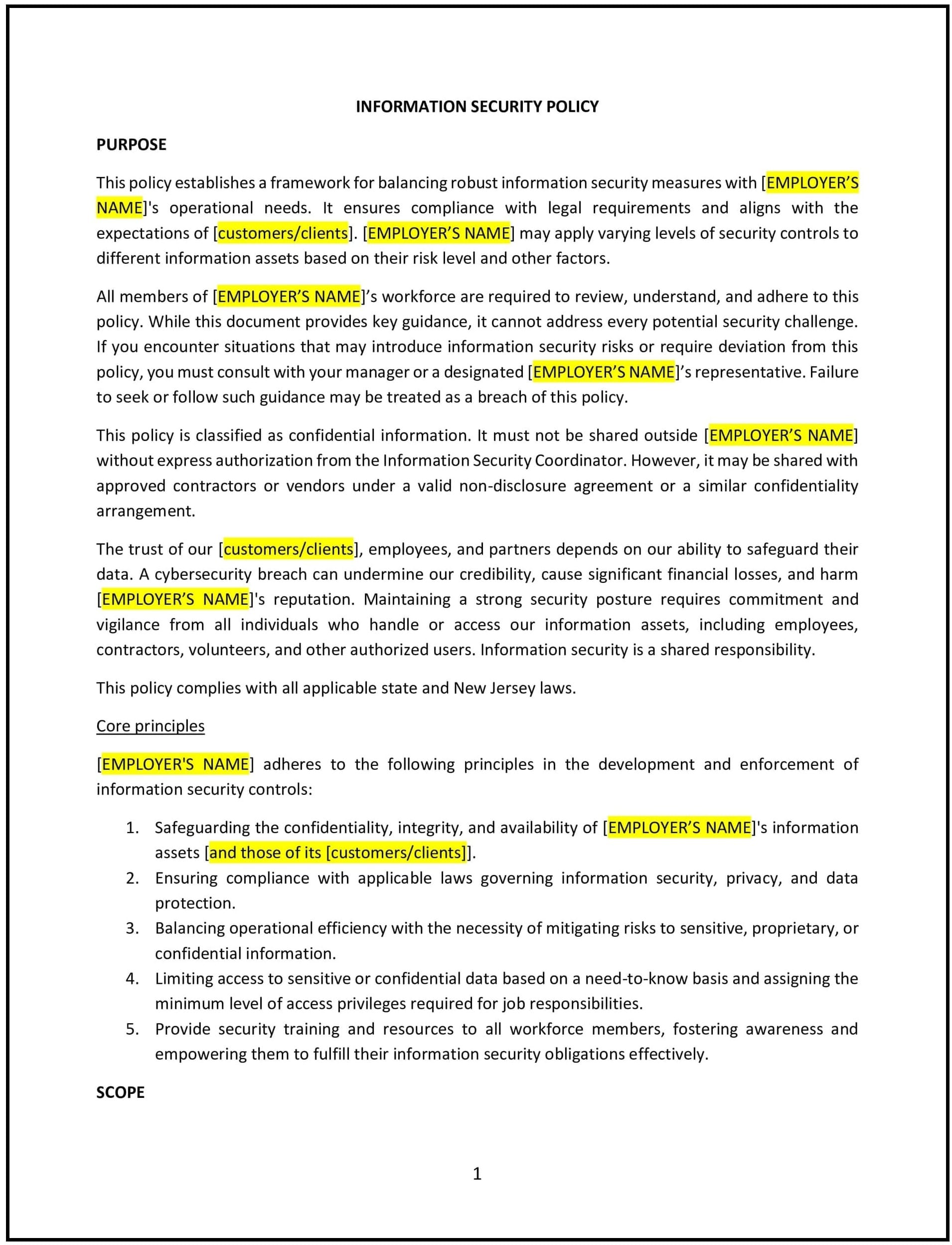Information security policy (New Jersey): Free template
Got contracts to review? While you're here for policies, let Cobrief make contract review effortless—start your free review now.

Customize this template for free
Information security policy (New Jersey)
An information security policy helps New Jersey businesses protect sensitive data, prevent cybersecurity threats, and establish protocols for handling confidential information. This policy outlines security measures, employee responsibilities, data access controls, and incident response procedures. It also sets expectations for secure data storage, password management, and third-party security requirements.
By adopting this policy, businesses in New Jersey can safeguard digital and physical information assets, reduce cybersecurity risks, and promote responsible data handling.
How to use this information security policy (New Jersey)
- Define information security objectives: Establish the business’s commitment to protecting confidential data, including customer, employee, and financial information.
- Implement access control measures: Restrict data access based on job roles and require authentication for sensitive information.
- Require strong password management: Enforce password complexity requirements and multi-factor authentication where applicable.
- Outline data storage and encryption standards: Specify how data should be securely stored, encrypted, and backed up to prevent unauthorized access.
- Establish guidelines for device security: Require employees to secure company devices, update software regularly, and report lost or stolen devices.
- Set procedures for handling cybersecurity incidents: Provide a response plan for reporting, investigating, and mitigating security breaches.
- Address third-party security risks: Require vendors and contractors to adhere to security protocols when handling company data.
- Review and update: Regularly assess the policy to align with evolving cybersecurity threats and New Jersey data protection requirements.
Benefits of using this information security policy (New Jersey)
This policy provides several benefits for New Jersey businesses:
- Reduces cybersecurity risks: Helps prevent data breaches, phishing attacks, and unauthorized access.
- Protects sensitive business and customer data: Establishes safeguards for confidential information.
- Improves regulatory preparedness: Provides a structured approach to handling data security risks.
- Strengthens employee awareness: Encourages responsible data handling and secure workplace practices.
- Enhances business continuity: Minimizes disruptions caused by cyber threats or data loss.
Tips for using this information security policy (New Jersey)
- Communicate the policy clearly: Ensure employees understand security expectations and reporting procedures.
- Provide cybersecurity training: Educate employees on recognizing threats, such as phishing and malware.
- Enforce device and network security: Require the use of VPNs, secure Wi-Fi, and software updates.
- Monitor access to sensitive information: Use tracking tools to detect unauthorized data access or breaches.
- Review the policy regularly: Update the policy based on new cybersecurity risks, technology updates, and business needs.